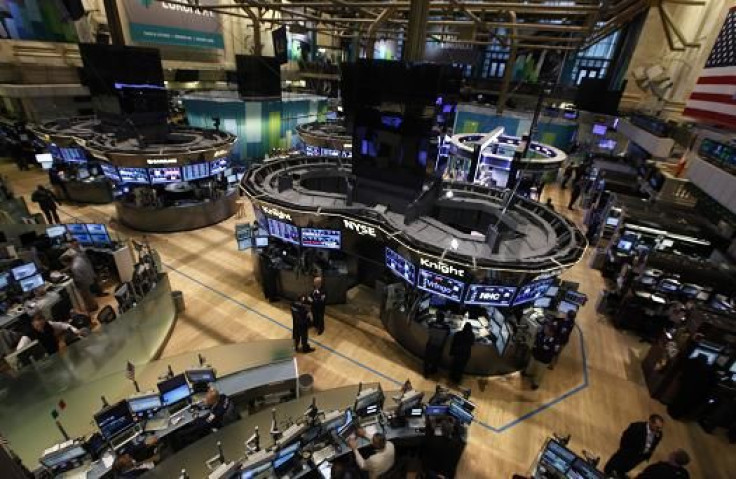Wall Street Lobbyists Face Reality Of Obama Administration Part Two

The very financial industry that just spent hundreds of millions of dollars in a scorched-earth battle against the reelection of President Barack Obama was trying to cut its losses this week, recalibrating its outlook and -- in the true fashion of bankers used to packaging "toxic" subprime loans into AAA-rated bonds -- trying to turn a stinker into a winner.
Having spent most of the past two years fighting President Obama, and bankrolling efforts to repeal the signature Dodd-Frank financial regulation law of 2009, industry lobbyists quickly pivoted Wednesday and Thursday to signal their acceptance that Dodd-Frank was now a done deal, further trying to get a seat at the table in discussions about how to address the impending “fiscal cliff” of tax increases and spending cuts, which most political commentators expect will dominate inside-the-Beltway politics for the next few months.
“What will matter now is how quickly and how successfully the politicians on both sides of the political spectrum come to an agreement about its massive fiscal cliff,” Geoffrey Dennis, a strategist at Citigroup, said in an interview on CNBC Wednesday.
A few weeks before the election, several Wall Street CEOs had already begun lobbying on the issue, bandying under a campaign called “Fix The Debt” to ask Congress and whoever the next president was to use the upcoming weeks to hammer out a comprehensive deficit reduction plan as part of any bargain to avoid the fiscal cliff.
But the move to the new big thing was accompanied by a public waving of the white flag on Dodd-Frank, which banks have furiously lobbied to weaken and repeal over the past two years.
“With the election now over, it is vital that we return to the work at hand, namely, the continued implementation of Dodd-Frank and addressing the fiscal cliff,” Tim Ryan, chief executive of the Securities Industry and Financial Markets Association, Wall Street’s main lobbying group, said in a statement on Wednesday.
Not everyone, of course, was ready to concede defeat without at least making some noise. A huge market sell-off on the day after the election, which appeared to begin only after U.S. traders began their day in earnest, was seen by some as high finance collectively excoriating the Obama victory.
On Bloomberg TV, independent portfolio manager Barry Ritholtz called it a Wall Street hissy fit.
Stocks in large banks, investment companies and private equity firms broadly underperformed the market -- Morgan Stanley was the biggest loser with a whopping 8.6 percent drop -- on concerns a second Obama term would bring in more profit-killing regulation and a punitive taxing structure.
Several personal finance advisers also told Bloomberg News that wealthy clients would cause a rush to sell off securities and other capital assets before new taxes are put into effect in 2016.
And there were even some who were trying to hold on to the idea the industry might still be able to lobby against the president as it had over the past few years, including Dale Brown, chief executive of the Financial Services Institute, who didn’t even wait for the race to be called when he released a statement saying his organization would “urge the president to carefully consider the closeness of the election results as he evaluates his regulatory policy priorities for a second term.”
For most, however, the reality had sunk in.
“Wall Street is now going to have to figure out how to make this relationship work,” Glenn Schorr, an analyst who follows the big banks for the Japanese investment bank Nomura, told The New York Times “It’s not impossible, but it’s not the starting point they had hoped for.”
“You win some, you lose some,” Dan Loeb, a hedge fund manager who supported Obama in 2008 but was acerbically critical of the administration in a 2011 letter to clients, also told The Times.
“We can all disagree. I have friends and we have spirited discussions. Sure, I am not getting invited to the White House anytime soon, but as citizens of the country we are all friendly.”
A wildcard Wall Street was also quietly observing: what the election of Elizabeth Warren to the position of junior U.S. Senator from the state of Massachussets would mean. Brown, a Harvard professor who is an expert on bankruptcy law, is a vocal critic of Wall Street excesses and the mastermind behind the Consumer Financial Protection Bureau, an agency established through Dodd-Frank to protect consumers from abuses by commercial banks, insurance and credit card companies.
Many saw it likely Warren would be assigned to the powerful Senate Finance Committee, and, on a longer timeline, would see her national profile increase.
“Wall Street C.E.O.’s, the same ones who wrecked our economy and destroyed millions of jobs,” Warren said in a speech at the Democratic National Convention in August, “still strut around Congress, no shame, demanding favors, and acting like we should thank them.”
They were certainly still strutting around Congress this week, though it is not clear how much they’ll be able to demand favors in the future.
© Copyright IBTimes 2024. All rights reserved.











